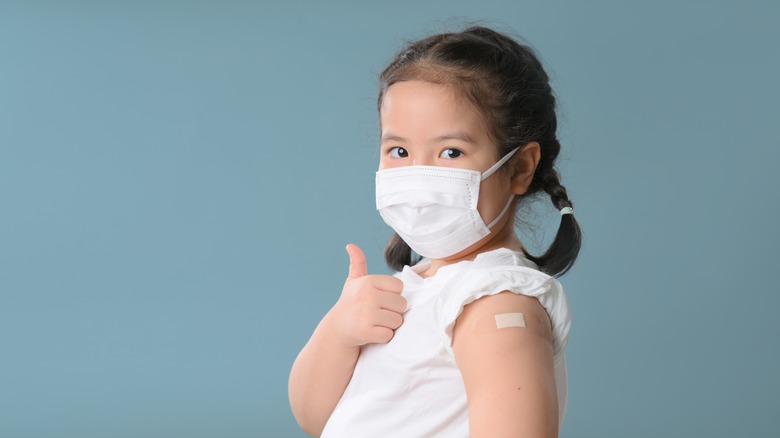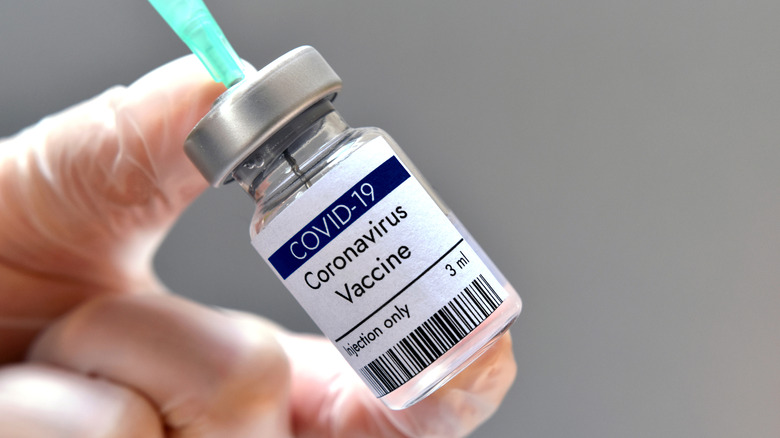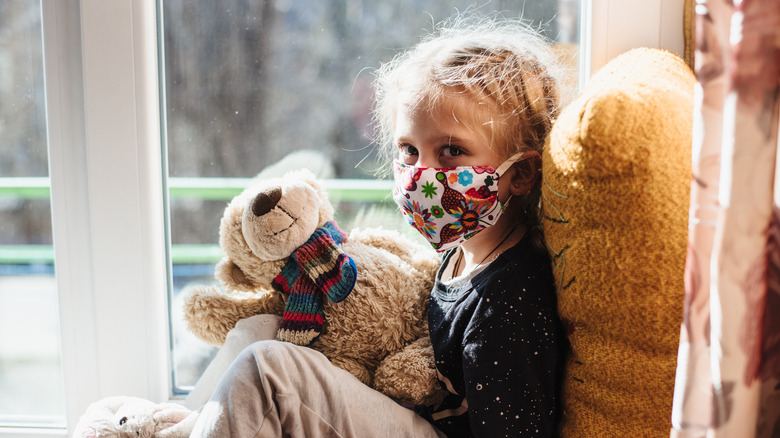ER Physician Dr. Michael Daignault Discusses COVID Vaccines For Children Under 5 - Exclusive Interview
The COVID-19 vaccine being available for children under the age of 5 has been a long time coming. First, 16-and 17-year-olds became eligible for vaccination. Then, the potentially life-saving jabs were offered to teens ages 12 to 15, followed by availability for kids as young as 5. Parents waited, with many wondering if the COVID vaccine for their youngest children would ever get approved.
Now, finally, as of June 21, 2022, the Centers for Disease Control are recommending that all children older than 6 months of age get the shots. While this news signals relief for many parents, others still have questions about safety and whether the immunizations are even necessary for little ones. According to the Mayo Clinic, kids are just as likely to get infected with the virus as their adult counterparts. However, our smallest citizens are less likely to become seriously ill, need hospitalization or die from the disease.
In an effort to weed through misinformation and get to the heart of what parents really need to know about the COVID-19 vaccine for kids under age 5, Health Digest talked to Michael Daignault, MD, a board-certified ER doctor in Los Angeles, who has been on the front lines fighting against the pandemic. In our exclusive interview, we'll explore how the vaccines were evaluated by drugmakers, where and when kids can get their doses and what the experts ultimately say about the importance of vaccination for this age group.
Parents can have confidence in the vaccine for their youngest kids
What was the process of approving the COVID vaccine for children under age 5?
Pfizer focused on tolerability, choosing the smallest effective dose at just three micrograms of antigen per dose. Their concern was that if the vaccine caused too many side effects and kids were miserable, parents wouldn't bring them back for additional doses. However, the cost of tolerability was that this low dose didn't trigger a strong enough response, particularly against Omicron, so the company did additional safety and efficacy trials on adding a third dose, to be done eight weeks after the second. The three doses will take eleven months to finish.
Moderna focused on efficacy and their vaccine is 25 micrograms in each dose, four weeks apart, so kids will have high protection much faster with Moderna than with Pfizer. However, Moderna will likely cause more common side effects given the larger dose of antigen used in each vaccine.
Parents need to weigh two versus three doses as well as time to protection and side effects.
Does the American Academy of Pediatrics recommend this vaccine?
Yes. The AAP "strongly recommends" for children in the 6-months to 5-year age group to get vaccinated.
Where and when to get kids vaccinated
Where can children under 5 get vaccinated for COVID, and what is the advised protocol for doses and boosters?
Speak with your pediatrician or go to Vaccines.gov/search/ and you can find a vaccine site by zip code or by type of vaccine.
The Pfizer vaccine is approved for those 6 months to 4 years. It's a three-dose regimen. The first two doses are done within three weeks, and then the third dose is done at least eight weeks after the second. The Moderna vaccine is approved for those 6 months to 5 years. It's a two-dose regimen given four weeks apart. There will likely be a booster/third dose recommended for those who choose Moderna in a few months.
So, how to choose? There were no head-to-head trials comparing the two types of vaccines so we can't say one is better than the other.
If you want your child "fully vaccinated" by the school year, go with Moderna, [because] it can be done over four weeks. We have more safety data on child vaccines from Pfizer overall than Moderna. Remember, there's a Pfizer vaccine for those 5 to 18, but not a Moderna vaccine for this age group. If your concern is which vaccine has the most safety data for kids and adolescents, go with Pfizer.
What parents can expect after vaccination — even after a COVID infection
Are there any side effects of the vaccine that parents should look out for?
In the vaccine trials for this age group, the most common side effects were fever, irritability and decreased appetite. Other common side effects include muscle aches or soreness at the site of injection. These can be managed with acetaminophen or ibuprofen.
Are there any children who shouldn't get the COVID vaccine?
No. Approximately 75% of children and adolescents have recovered from a COVID-19 infection — one third of those were during the peak Omicron surge this past winter. If it's been 90 days [or more] since the infection, it's important they start the vaccination process. However, a previous infection should count as a "dose." For example, the Pfizer vaccine for those 6 months to 5 years is a three-dose regimen. In the case of a child who had COVID, they should be well-protected with two doses.
The main takeaway for parents
What is your advice to parents who still aren't sure about vaccinating younger kids for COVID?
Relative to adults, kids are less likely to develop severe COVID-19 illness and require hospitalization, but that does not mean it cannot affect them. Over 1,000 children have died from COVID-19 and thousands have required hospitalization, including kids with no known medical problems. We also know that a substantial percentage of people who recover from COVID-19 will go on to develop long-term symptoms.
Both of these vaccines are safe and can provide substantial protection against hospitalization and long COVID. It's important for kids to face Omicron and any of its sub-variants with some vaccine-induced protection. Nationwide, cases have plateaued at 100,000 per day, which means a substantial risk to unvaccinated kids at summer camp, traveling with families, and the months leading up to the new school year.
Michael Daignault, MD, is a board-certified ER doctor and COVID-19 expert in Los Angeles. Find him on Instagram.
This interview has been edited for clarity.





